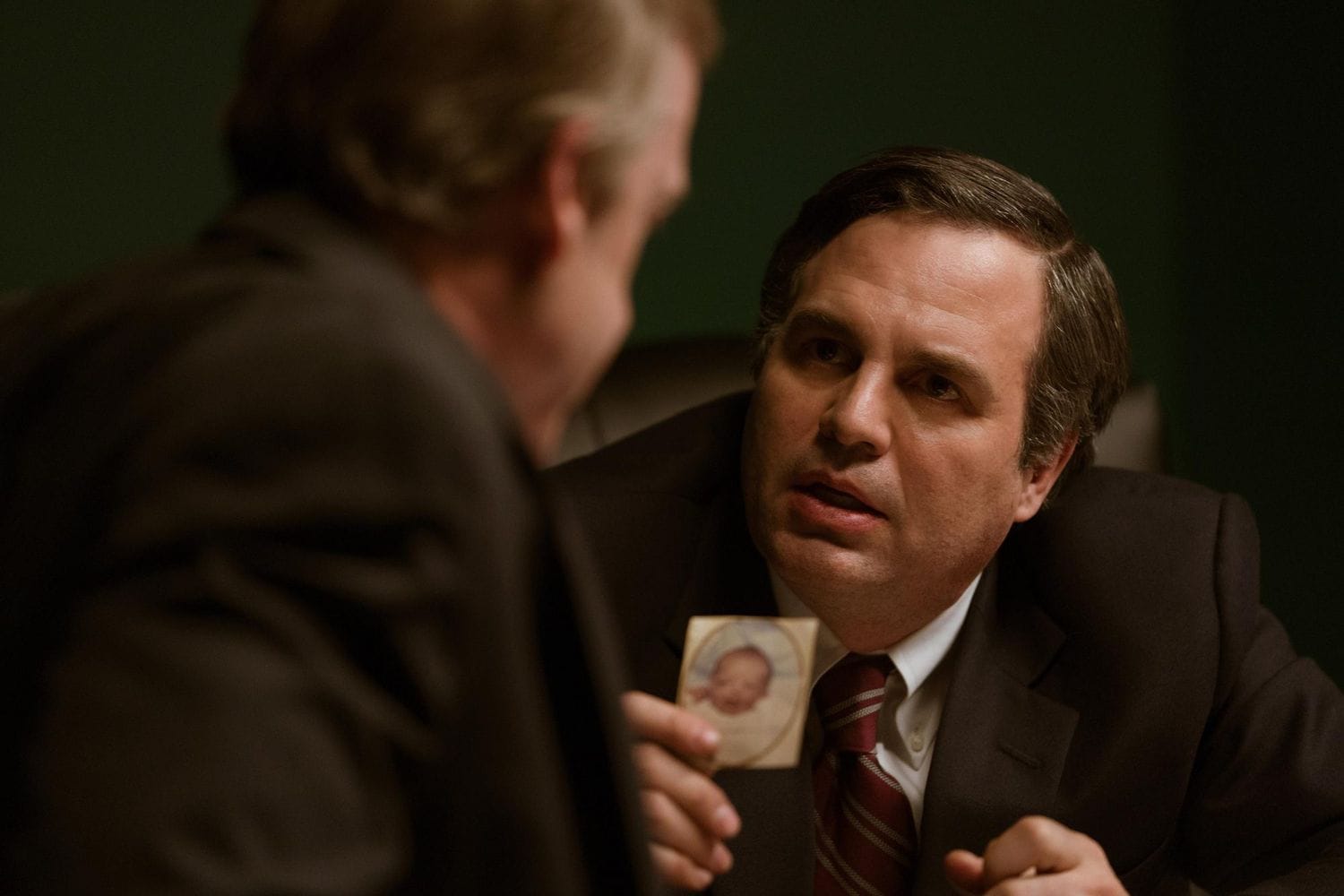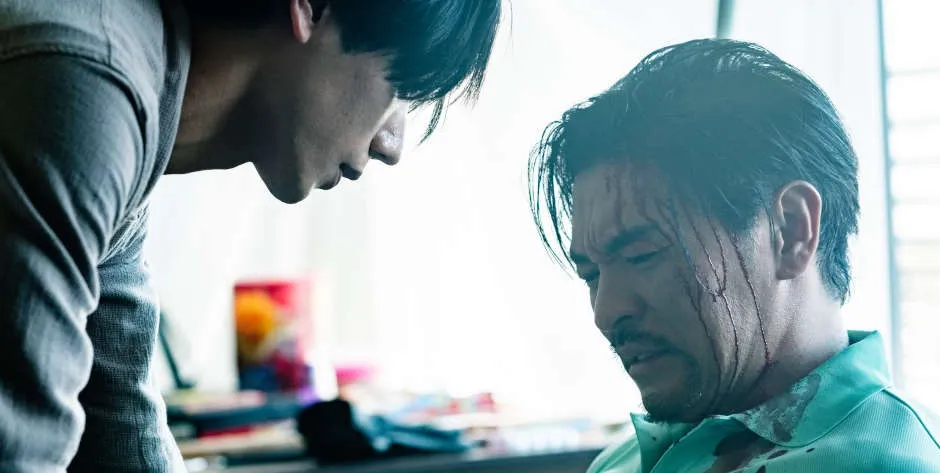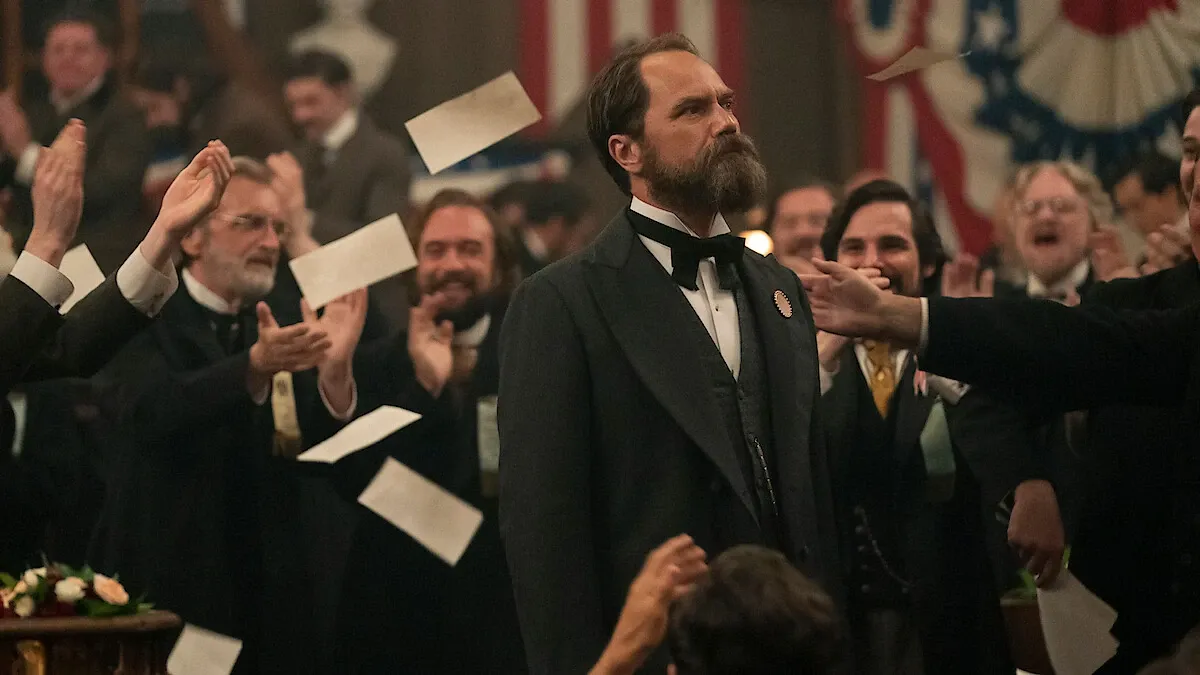DARK WATERS, the new film by Todd Haynes, begins like a monster movie.
A group of teenagers drives through a hot summer night towards a gated lake in a remote part of town. As they dive in, they remark how unseasonably warm it is, and we see their figures flailing in the murky water. It’s a moment that seems innocuous but feels unbearably menacing at the same time. A pair of guards fishing out samples from the lake chase the kids off in a hurry. A massive factory belonging to the chemical giant DuPont looms in the background.
We don’t see the teenagers again. They’re victims already, they just don’t know it. DARK WATERS is a monster movie, but the monster is not a tangible creature with many eyes and limbs, but capitalism itself.
Chronicling the real-life decades-long legal battle between Robert Billott and DuPont, DARK WATERS is a riveting and profoundly terrifying cry for justice in the face of American corporatism. Billot, who began his career as a corporate defense attorney for companies like DuPont, worked in building many of the loopholes that corporations in America use to keep their unscrupulous tactics from ever being prosecuted. After a chance encounter with a family friend put him on an investigation over the death of farm animals in the early 90s, Billot soon found himself suing one of the most influential companies in the world in the name of the working-class people they had poisoned.
Hayne’s depiction of this picks up just as a distant family friend approaches Billot with a plea for help. Cows are dying in massive numbers, each sick with tumors or worse. As Billot digs deeper, the damage reveals itself far worse and more insidious than initially believed. The ensuing legal struggle becomes not just a cry for justice, but the life’s work of the kind of man thought extinct in a rotten system. Teflon’s true story (it contains toxic material found that has contaminated every being on the planet) is nightmare fuel for decades onward.
In true horror movie fashion, the monster itself looms over every scene. Haynes depicts the passage of time as the loss of the countryside under newly built factories and corporate billboards. Subverting a beloved country song to sound menacing, Haynes transports us through West Virginia in an image of commercialized genocide where thousands, if not millions, are knowingly poisoned for a quick buck.
DARK WATERS is classy, smart, and mature filmmaking that is rarely seen in theaters anymore. It’s a film that embraces the limitations of its genre and style and never feels stagey in the presentation. Mark Ruffalo, already enjoying a great year with his revelatory performance, I KNOW THIS MUCH IS TRUE, is on fire as Billot. Fully leaning on his hangdog mannerisms he’s perfected over the years, Ruffalo is likable, charming, and wholly believable as a modern-day crusader for justice. It’s not as showy of a performance as his HBO dual turn, but there’s grace in his subtle bullheadedness on display here.
His supporting cast includes reliably stellar names like Tim Robbins, Anne Hathaway, Victor Garber, Bill Camp, and a scenery-chewing Bill Pullman. They’re all terrific in their parts, even as Hathaway suffers through a thoroughly underwritten role as The Wife of The Hero. To her credit, as one of the best actresses of her generation, she makes the thankless part shine. Nevertheless, it’s still an odd stumble in an otherwise compelling film.
One of the things that Hayne does so well is allowing the cast to look tired. Everyone foregoes their usual otherworldly imagery in favor of dehydrated faces, sunken eyes, and slumped shoulders. The film does not attempt to hide the personal, physical, and emotional cost that uncovering even a morsel of truth requires.
While elements of the film play out like a horror film (an animal attack could be straight from Stephen King), much of it is presented like a 1970s conspiracy thriller in the style of ALL THE PRESIDENT’S MEN. I’m a big fan of this type of storytelling where our heroes spend long periods just looking for clues, putting together evidence, and doing the legwork. It’s usually not cinematic in the least, but Haynes is such a gifted visual storyteller that he uses the empty spaces around Ruffalo to keep the images compelling.
Much of the film looks downwards at Billot as he sits on floors, benches, or hunched over at desks trying to make sense of what he’s finding. In a superb scene, he even teaches the audience reading comprehension, pointing out the insanity of just how little a corporate statement says by design. Another great bit of staging is where he and Anne Hathaway realize just how alone they are in the corporate wilderness, as the golden arches of a recognizable fast-food chain loom over their heads like an industry-standard sword of Damocles.
By the time the story reaches the courthouse (years after Billott took the case), it feels like the world itself has changed into something unrecognizable. It’s here that Ruffalo and Haynes do some of their most compelling work, arguing that even as the system itself might triumph (in true Orwellian fashion), the act of resistance itself is worth the fight.
Initially released in 2019 and scheduled for a March 2020 release in Finland, distributors pushed DARK WATERS back due to the COVID-19 pandemic. It’s finally seeing a premiere this Friday, July 3. While things still aren’t back to normal and theaters won’t allow for full capacity, if you see one film this summer, make it this one.













